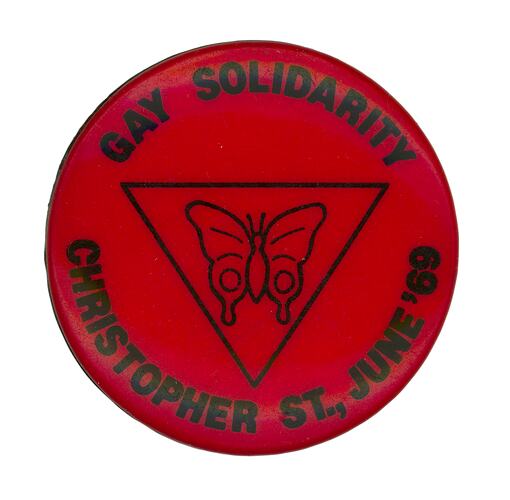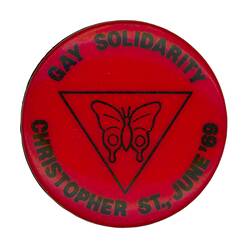'Christopher St' refers to a street in New York's Greenwich Village in which gays and lesbians rioted against police bias and oppression in 1969. The affray was centered on the Stonewall Inn. In the wake of the riots the name 'Stonewall' came to symbolize the gay community taking a stand against oppression, and came to be thought of as the moment of birth of the gay liberation movement.
According to Susan Stryker, Director GLBT Historical Society, in her article 'Christopher Street Gay Liberation Day 1970', the march and rally organized a year after the 1969 riots established the riots in popular memory. Stonewall itself was preceeded by the now often overlooked 'Annual Reminder' demonstrations, held each year between 1965 and 1969 on the Fourth of July outside Independence Hall, where the U.S. Constitution was drafted and signed. The demonstrations reminded the nation that not all of its citizens had equal rights under the law, and were significant events in the history of the gay rights struggle.
Stonewall might have been similarly forgotton, but young activists, 'whose media savvy and organizing skills had been honed during the social justice movements of the mid-1960s', resolved to make the Stonewall riots into a rallying point for a national movement. They started planning for the first anniversary march almost as soon as the riots had ended. Thousands of people turned out for the 1970 Gay Libration Day in New York, as well as other cities across the United States. The movement grew dramatically over the succeeding decades, and has become an international event in guise of Gay Pride festivities.
More Information
-
Keywords
-
Localities
-
Authors
-
Article types

